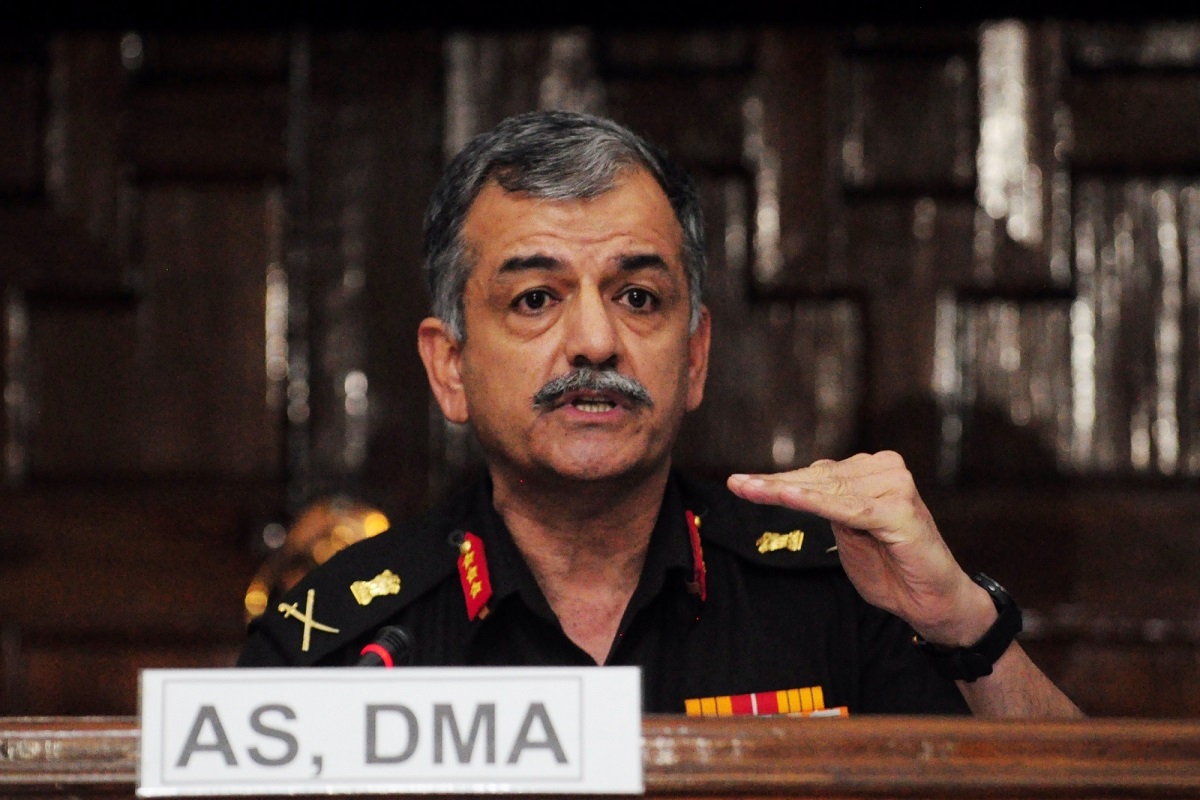Even as the protests against the Agnipath scheme for recruitment in the armed forces continue in several parts of the country Lt Gen Anil Puri, Additional Secretary, Department of Military Affairs, on Sunday asserted that the scheme will be implemented as there is no question of its rollback.
Lt Gen Puri was addressing a Joint military briefing on the Agnipath recruitment scheme with Air Marshal S K Jha, Vice Admiral Dinesh Tripathi, and LG C Bansi Ponnappa. He said this reform was long pending. “We want to bring youthfulness and experience with this reform. Today, a large number of jawans are in their 30s and officers are getting command much later than in the past,” he said while addressing the media.
Referring to the provision of reservations in different ministries, Lt Gen Puri said announcements were pre-planned and not in reaction to the arson and agitation which took place after the announcement of the Agnipath scheme. He also clarified that all recruitments will be through the Agnipath scheme only.
“Around 17,600 people are taking premature retirement from the three Services every year. No one ever tried to ask them what they will do after retirement,” Puri said. He also added that Agniveers would get the same allowance in areas like Siachen and other areas which are applicable to the regular soldiers serving at present.
On the ongoing protest, he said, “Indian Army’s foundation lies in discipline. No space for arson and vandalism. Every individual will have to take a testify that he has not been part of any protests or vandalism.”
Air Marshal Jha informed that the registration process for the first batch of Agniveers will start on June 24 while from July 24 phase 1 online examination process will begin. The first batch would be enrolled by December and training would commence by December 30.
Talking about the recruitment process in the Indian Navy, Vice Admiral Dinesh Tripathi said the first batch of naval Agniveers will start reaching the training establishment INS Chilka in Odisha from November 21. He also made it clear that both male and female candidates will be recruited through the Agnipath scheme.
The Navy official pointed out that the Indian Navy has 30 women officers sailing on different Indian Navy ships. He said they have decided to recruit women also under the Agnipath scheme for deployment on warships.
Lt Gen Bansi Ponappa said, “By December, we will get the first batch of 25,000 Agniveers and the second batch would be inducted around February 2023 making it 40,000.”
Youths across the country have been protesting against the Agnipath scheme and incidents of violence have been reported in many cities and towns. In some places, the protests turned ugly as trains were set ablaze. On One person died in Telangana’s Secunderabad on Friday as protests against the newly announced military recruitment policy.
Protesters torched compartments of a train in Bihar’s Samastipur and those in another train at Lakhisarai station. As many as 340 train services were affected on Friday due to the agitation.
Notably, the Agnipath Scheme was launched by the government on June 14 in an effort to bring a change in the recruitment process of the Armed Forces. With the new military recruitment scheme facing a backlash, the Centre has decided to bring in a change in the upper age limit for recruiting Agniveers. Granting a one-time waiver, the Centre on June 16, announced that the Agniveer upper age limit for recruitments via Agnipath Scheme has been extended to 23 years from 21 years.
The scheme is called Agnipath and the youth selected under the scheme will be known as Agniveers. Agnipath allows patriotic and motivated youth to serve in the Armed Forces for a period of four years.











